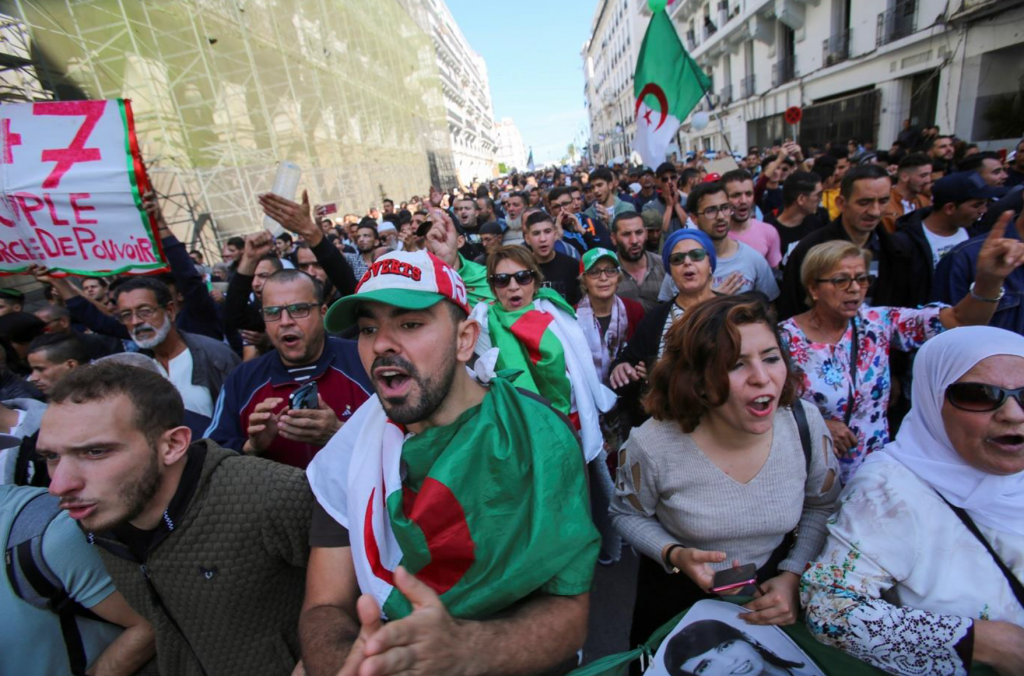New report co-edited by EuroMed Rights highlights key points to achieve long-term, meaningful political reform in Algeria.
“Revolution is unlikely to bring forth a democratic transition and respect for human rights in Algeria.”
This is the key argument developed in a recently published report, Prospects for democracy and human rights in Algeria based on discussions held online between academics, human rights experts and civil society activists from Algeria and Europe.
To achieve long-term, meaningful, political reform, the editors stress that the Hirak movement must adapt its strategy to the political realities and power balances on the ground. The first step in that direction will be to reform its political agenda and transform itself into a reformist political player.
Looking at Algeria’s economic dependence on natural gas, they emphasise that a transition towards a democratic system will require combatting corruption, the creation of more stable jobs for the country’s unemployed youth and access to consumer goods and leisure for the existing middle-class.
The editors also highlight the importance, for domestic civil society actors, to look for opportunities to gain influence over the country’s political institutions. Only doing so will they avoid influential regime protagonists subduing and circumventing constitutional guarantees. The international community must also vigilantly monitor the situation and systematically denounce violations of rights and freedoms.
“Gradual reforms, rather than sudden revolution, are more likely to convince the military that it should decrease its role in politics. Negotiating a genuine withdrawal of the military from politics will inevitably involve painful trade-offs and compromises for all parts” summarises Rasmus Alenius Boserup, Executive Director at EuroMed Rights and co-editor of the report.
Read the full report Prospects for democracy and human rights in Algeria.

